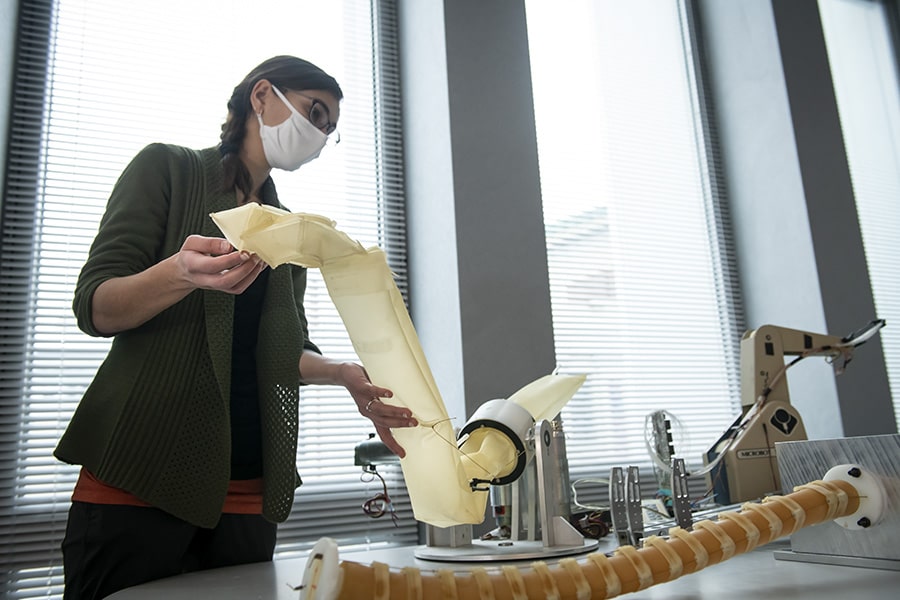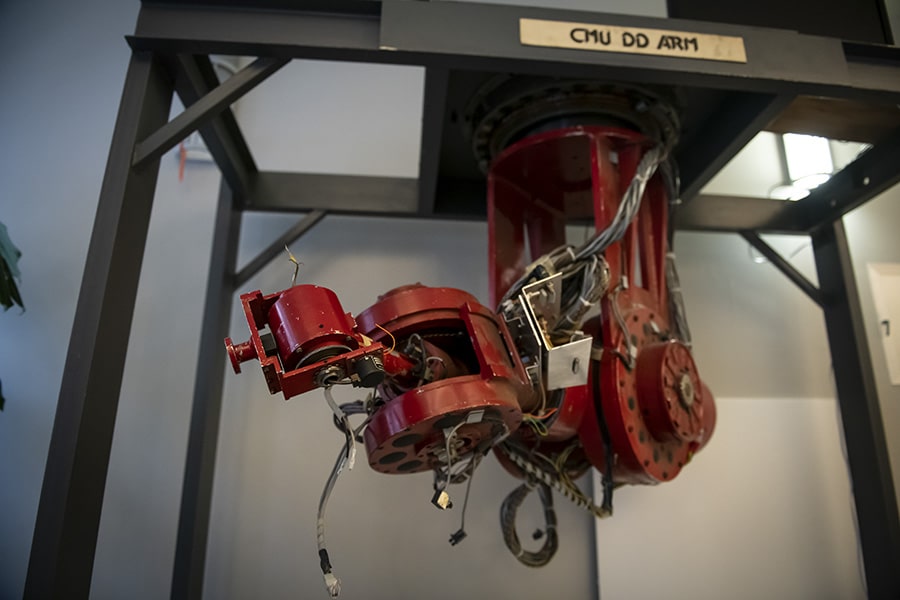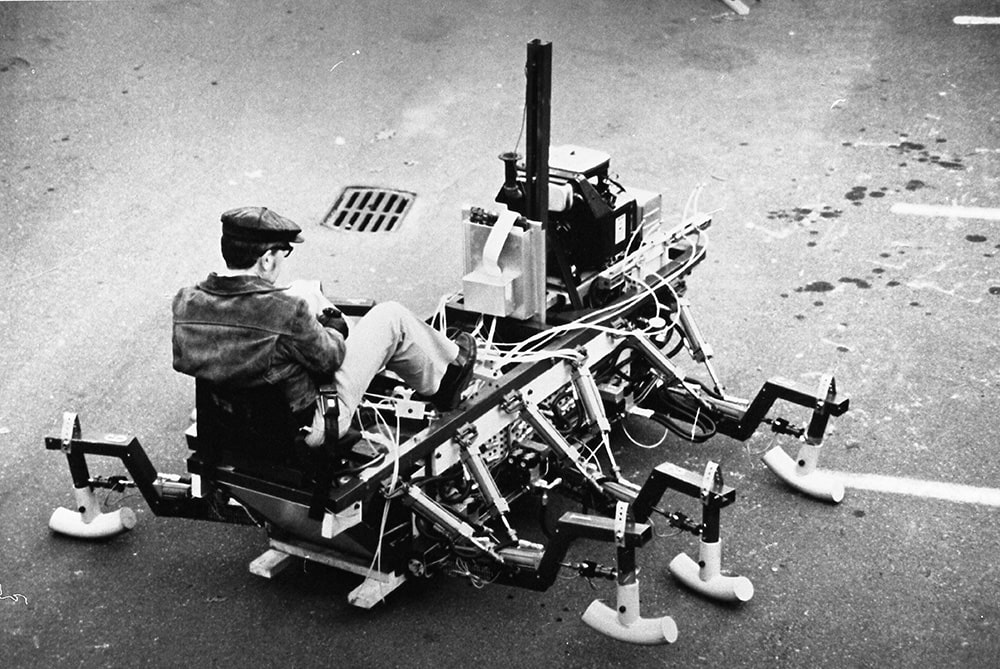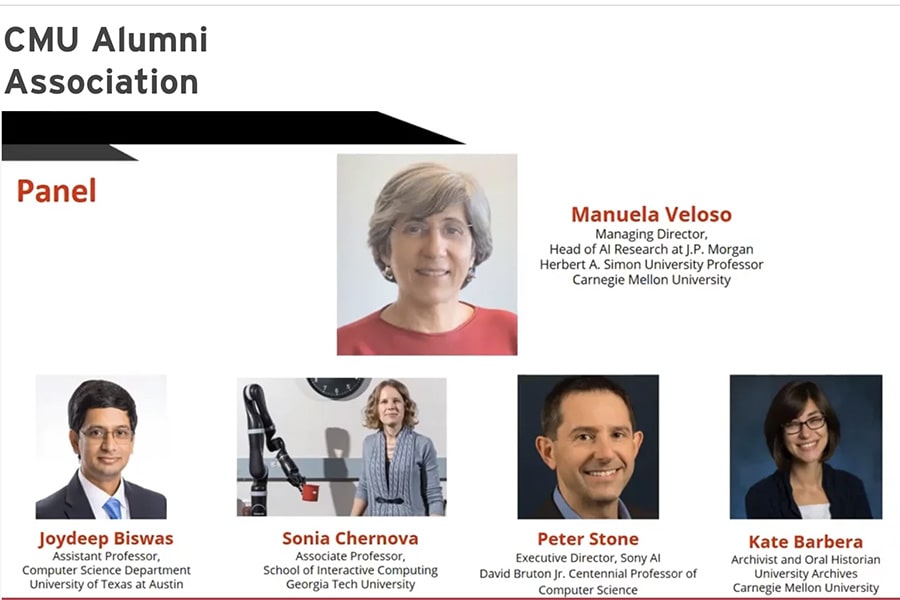Sloan Foundation Provides Funding for Robot Archive
The Alfred P. Sloan Foundation has awarded $150,000 to the Carnegie Mellon University Libraries to fund the research into the creation of the Robot Archive, a multiphase, multiyear program to create the preeminent archive dedicated to the preservation and curation of the history of robotics.
In partnership with CMU's School of Computer Science, cross-campus partners, and a multidisciplinary team of archivists and information professionals, the Libraries will investigate the research ecosystem of robotics and create a model for preserving this complex, dynamic field of scientific inquiry. Brian Mathews, associate dean for innovation, preservation and access is principal investigator and Katherine Barbera, an archivist and oral historian, is co-principal investigator for the award.  The Sloan Foundation award will support the first year of this effort, allowing the Libraries to create key positions and lay essential groundwork for the archive and a future robotics collection. This will allow archivists to provide public access to material and objects from the history of robotics, much of it for the first time. The program has received additional funds from CMU donors.
The Sloan Foundation award will support the first year of this effort, allowing the Libraries to create key positions and lay essential groundwork for the archive and a future robotics collection. This will allow archivists to provide public access to material and objects from the history of robotics, much of it for the first time. The program has received additional funds from CMU donors.
"Archivists make crucial decisions about what to keep and what to discard, ultimately deciding what information is incorporated into the historical record and public knowledge," said Barbera. "Archival documentation, such as emails and videos, and documentary activity, such as oral history, is essential to contextualizing robots and comprehending the societal impact of the field."  The Robot Archive is a flagship program for the Libraries' initiative to preserve and promote the history of science, technology and information at Carnegie Mellon.
The Robot Archive is a flagship program for the Libraries' initiative to preserve and promote the history of science, technology and information at Carnegie Mellon.
"With the support of the Sloan Foundation, we have an exciting opportunity to establish a new model for archiving multimodal technology collections that will have applications for other fields of science," said Keith Webster, dean of Libraries and director of Emerging and Integrative Media Initiatives. "The potential impact is incalculable."
The program acquired its first collection in December with an effort to retrieve more than 20 robotic artifacts, prototypes and parts — and an array of commercial robots, toys and robot kitsch — from the collection of robotics professor Chris Atkeson in CMU's Newell-Simon Hall.

An archive photo of the Trojan Cockroach.
The collection also includes parts from a hydraulic walking machine designed by Ivan Sutherland, who is a vanguard of computer graphics, known as the Trojan Cockroach.
The acquisition of the Atkeson collection and the research funded by the Sloan grant are the first steps towards the ultimate creation of a comprehensive robotics collection that would be the first of its kind in the world: a collection born from the archive that marries documentation with the products of innovation and brings new light to a field of scientific inquiry.

